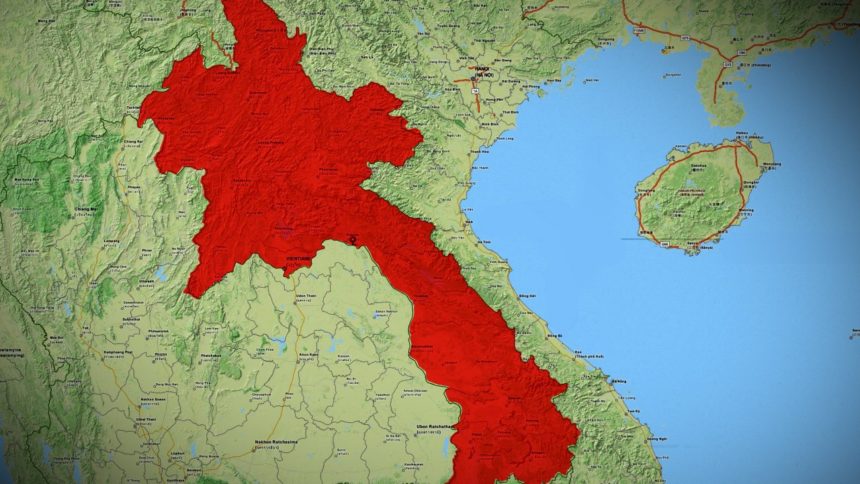Hmong and Laotian communities at risk
Deportation proposal from Trump administration instills concern at UW-Eau Claire
Photo by Submitted
The Trump administration and the U.S. Department of State have spoken with the government of Laos to instigate deportation toward Laotian and Hmong immigrants. The proposal will impact Hmong or Laotian individuals who are not citizens of the United States and have current orders of deportation issued against them.
The Hmong Student Association has declined to comment at this time, due to the sensitive concern the Trump proposal has toward marginalized identities.
Discrimination affects a multitude of minority groups across the United States. There is a new threat of security for members of the Hmong and Lao community.
According to MPR News, the Trump administration and federal State Department have spoken with the government of Laos to instigate deportation toward Laotian and Hmong immigrants.
The proposal will directly affect individuals who are not citizens of the United States and have current orders of deportation issued against them, according to MPR News.
Dang Yang, the director for the Office of Multicultural Affairs, first addressed the issue on how it would directly impact the student body and the community OMA serves.
“We are concerned about the specific pattern of human rights violations that we have from Southeast Asia,” Yang said. “The deportation process and its impact on local families, community members and students here at Eau Claire are very real.”
Pheng Kong Pha, a member of the Critical Hmong Studies Advisory Committee, said he views this direct deportation proposal as an unjust act towards the Hmong and Lao communities within the United States.
“I am questioning the purpose,” Pha said. “Hmong and Laotian people are not security threats to the national public in that sense or to their communities. These actions affect our community and Hmong students here at UWEC who could potentially have family members that might be affected.”
The proposal is set to affect around 4,700 Laotian and Hmong individuals nationwide who have never become citizens of the United States, according to advocates from MPR.
A student who will remain anonymous, said they were initially upset after reading articles on the deportation of Hmong and Laotian individuals within the United States.
Articles can confuse not only the affected populations, but those who may not know any information on the subject of deportation, the source said.
“There was not enough information and with the information getting out there to the public, it just felt like it was going to create chaos and panic for communities,” the source said.
The influx of Laotian and Hmong ethnic groups came from the flee to the United States throughout the Laotian Civil War, coined the “Secret War,” which ended in 1973. Throughout the war, the US dropped an estimate of two million bombs and artillery throughout the country of Laos, according to NBC News.
The source said the US currently expresses an anti-immigration and refugee mentality. With the subject of Hmong and Laotian deportation, affected individuals are located all around communities, especially on the UW-Eau Claire campus.
“If you do not know who the Hmong people or Lao people are within your community, you do not understand the history and you do not understand that we are allies,” the source said. “We are not just some random community that has no ties to America.”
Since 1998, more than 16,000 Southeast Asian Americans have been given orders of removal from a result of the Illegal Immigration Reform and Immigrant Reponsibility Act of 1996, according to NBC News.
Pha said he is a scholar who primarily studies within the history Hmong refugee migration. His interests with the current legislation of Hmong and Laotian individuals lie in the new flow of immigration and refugee migration within the United States.
“I see myself as (someone) who can provide historical context, political context and Hmong people’s migration to the United States which came from very specific events,” Pha said. “I see myself as providing all of this content and information to students.”
According to the Wisconsin State Journal and the United States Census, since 2010 there has been an estimate of 49,000 Hmong individuals who currently reside in Wisconsin, out of 300,000 nationwide.
The anonymous source said, as of now their family will not be directly affected by the deportation proposal. However, people who are not aware of the deportation proposal may feel panicked if they could be potentially at risk from its ramifications.
“(My parents) are permanent residents, so they are documented,” the source said. “Articles that did come out just said anyone (who is Hmong or Lao) can be deported. That is a huge population of people with not enough information. People who do not know about this could still be freaking out if their parents are not documented.”
Mike Pompeo, US Secretary of State, directly met with the Lao People’s Democratic Republic on this agreed proposal to send the Hmong and Lao people to their country of origin, according to WQOW News and an interview with Kong Pheng Pha.
Pha encourages students and staff to initiate conversations with others on the issues the Hmong and Lao population currently face in the political world.
“I encourage students to really look into some of the policies and dig deeper into why this (deportation proposal) is happening and how it was allowed to happen,” Pha said. “To critically think about intervention and to really be proactive.”
The anonymous source said they hope people who know Hmong and Lao members of their community, will speak up about the issue at hand.
“Ally with the Hmong people, because even though we might not all be citizens (of the United States) we have had a life here and we have made those meaningful connections within our community,” the source said. “It is important to recognize the humanity of people.”
Yang said being alert is absolutely vital and hopes to showcase how OMA aims to minimize misinformation and create a safe environment for minorities on campus.
“We are committed to work closely with the campus to create an environment where all students feel welcome,” Yang said. “We want to ensure we are working closely with our partners and our collaborators to meet the needs of those traditionally marginalized and underrepresented populations.”
OMA will continue to work closely with their partnered agencies and with elected officials to understand the real impact this proposal will have on Eau Claire community members, according to Yang.
For more information on safety resources through UW-Eau Claire, locate OMA in Centennial Hall.
Nelson can be reached at [email protected].

Evelyn Nelson is a third-year Journalism and Environment, Society and Culture student. This is her fifth semester on The Spectator. She enjoys fulfilling her dream of being a barista, at SHIFT Cyclery and Coffee Bar. Stop by for some great coffee and conversation!

